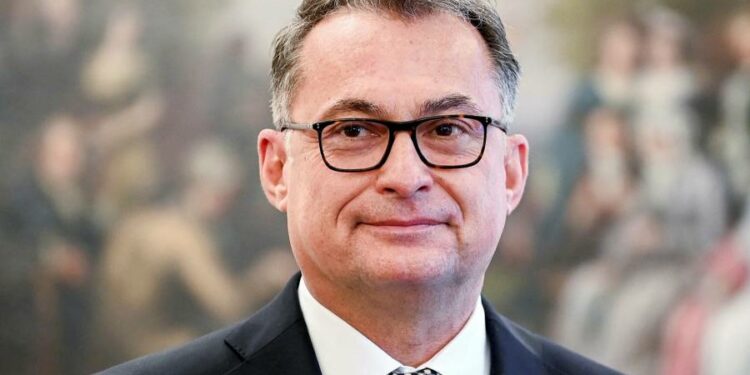The new head of Germany’s central bank has said it is time for Europe to tighten its financial belt by ending the exceptional monetary and fiscal stimulus that helped the economy to rebound swiftly from the pandemic.
Joachim Nagel, who took over as Bundesbank president last month, has called for a “normalisation” of eurozone monetary policy in response to record inflation and said EU fiscal rules should be “stricter” to prevent countries ignoring them.
“Many countries are beginning to relax the pandemic restrictions,” Nagel told Die Zeit in his first interview since starting the job. “The economy is recovering. The job markets are looking good. That’s an encouraging picture. That is why monetary policy can become less expansive.”
His comments are a clear confirmation that the new president will continue the Bundesbank’s inflation-fighting hawkish tradition. The German central bank has always viewed unconventional policies such as negative interest rates and bond-buying with suspicion.
Nagel predicted inflation would stay high and average 4 per cent in Germany this year, saying that unless the situation changes soon, he would call for the European Central Bank to reverse its ultra-loose monetary policy when it meets on March 10. “The first step is to end net bond purchases during 2022,” he said. “Then interest rates could rise this year.”
He also urged Brussels to tighten EU fiscal rules so that it was harder to “circumvent” them as many countries did in the past, even Germany. The rules limit government debt levels and deficits, but have been suspended since the pandemic hit in 2020.
“What applies to monetary policy also applies to fiscal policy: a lot has to change after the pandemic,” said Nagel. “When we put the crisis behind us, it will be time to reduce the high government debt ratios and thus build up buffers again.”
“We should think about clearer, simpler and stricter rules,” he said. “The rules should better ensure that high government debt ratios are reduced.” His comments clash with recent calls by the leaders of France and Italy to revamp the rules to allow higher public investment, setting up a battle before the limits are due to be reintroduced next year.
Nagel, a former executive at the Bank for International Settlements, worked at the Bundesbank for 17 years before leaving in 2016 and was chosen by Germany’s new government to take over from Jens Weidmann who decided to quit after a decade in the job.
Last week, he joined several of his fellow ECB governing council members in calling for more immediate action than was ultimately announced at their meeting.
Christine Lagarde, ECB president, caused a sell-off in bond markets by no longer ruling out that the bank could raise interest rates this year. Her comments triggered a sell-off in eurozone government bond markets as investors predicted the ECB could stop net asset purchases and return its negative deposit rate to zero by the end of the year.
Nagel said the current situation of high inflation, falling unemployment and resurgent demand was a “textbook template” of when a central bank should act. “We mustn’t ignore the fact that we have provided the markets with plenty, even overabundance, of liquidity over the years because the inflation rate was too low for a long time,” he said.
He warned hesitating to act now could force the ECB to take more drastic action later on, which would be more jarring for financial markets and the economy, adding: “In my estimation, the economic costs are significantly higher if we act too late than if we act early.”











